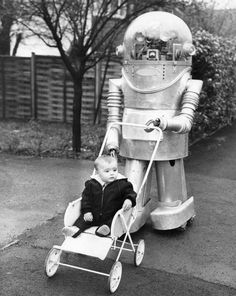We may be on the doorstep of a miraculous mansion, but who will live there? It could be that the Digital Age, like the Industrial Age before it, creates as many jobs as it replaces, but that’s looking less likely, and society being wealthy in the aggregate without concern for the breakdown of the bounty could become a scary thing. From Claire Cain Miller at the New York Times:
“There are certain human skills machines will probably never replicate, like common sense, adaptability and creativity, said David Autor, an economist at M.I.T. Even jobs that become automated often require human involvement, like doctors on standby to assist the automated anesthesiologist, called Sedasys.
Elsewhere, though, machines are replacing certain jobs. Telemarketers are among those most at risk, according to a recent study by Oxford University professors. They identified recreational therapists as the least endangered — and yet that judgment may prove premature. Already, Microsoft’s Kinect can recognize a person’s movements and correct them while doing exercise or physical therapy.
Other fields could follow. The inventors of facial recognition software from a University of California, San Diego lab say it can estimate pain levels from children’s expressions and screen people for depression. Machines are even learning to taste: The Thai government in September introduced a robot that determines whether Thai food tastes sufficiently authentic or whether it needs another squirt of fish sauce.
Watson, the computer system built by IBM that beat humans at Jeopardy in 2011, has since learned to do other human tasks. This year, it began advising military veterans on complex life decisions like where to live and which insurance to buy. Watson culls through documents for scientists and lawyers and creates new recipes for chefs. Now IBM is trying to teach Watson emotional intelligence.”
Tags: Claire Cain Miller, David Autor

